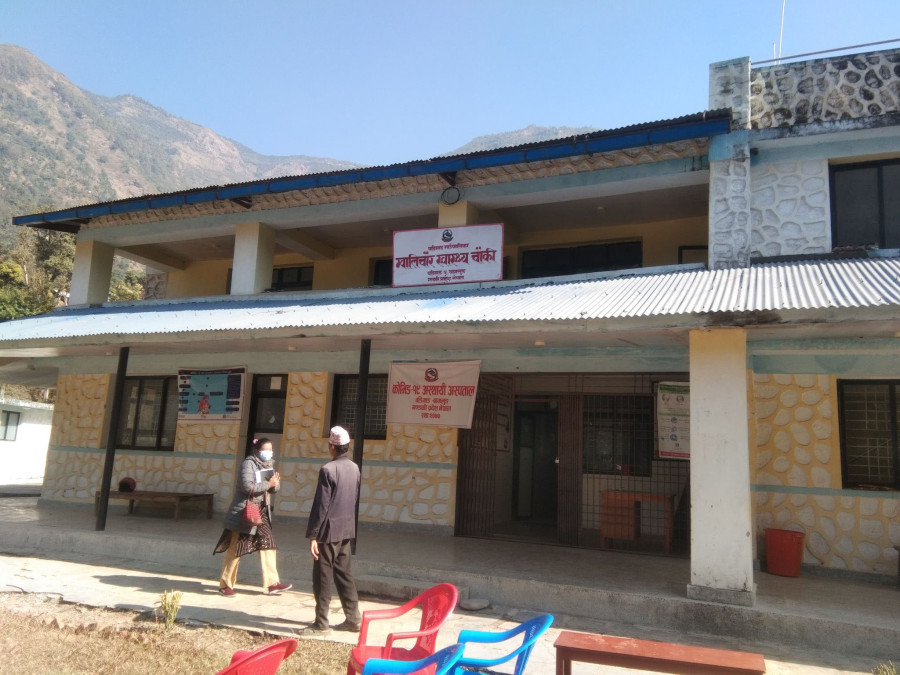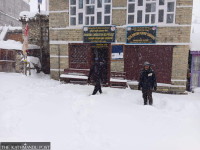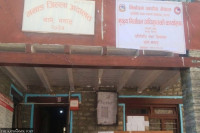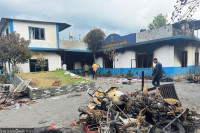Gandaki Province
Pregnant women in rural areas risking their lives with home births
Home deliveries are still a popular option in the rural areas of Baglung due to a lack of awareness among the local population, according to the District Health Office.
Prakash Baral
Last month, a 35-year-old postpartum woman and a newborn died in Badigad Rural Municipality due to delivery complications.
In January, a 31-year-old pregnant woman from Tamankhola Wad No. 2 died after getting an abortion in a private medical. Another 40-year-old pregnant woman from Dhorpatan Municipality Ward No. 8 also died of complications in home delivery.
According to the District Health Office in Baglung, it faces challenges when it comes to bringing rural women to health posts for pre-and post-natal care and for institutional deliveries.
On Sunday, Badigad Rural Municipality issued a public notice following an increase in the number of maternal and neonatal deaths in the local unit. In the notice, the rural municipality has requested the public to take pregnant women to health institutions for regular pregnancy check-ups and have their delivery at birthing centres.
“The rural municipality in the current fiscal year has already spent Rs 1.5 million to rescue pregnant women from Badigad to well-facilitated hospitals,” said Mehar Singh Paija, chairman of Badigad Rural Municipality.
In the current fiscal year, the rural municipality rescued seven pregnant and postpartum women from the rural municipality after they faced delivery complications.
In January, 35-year-old Pushpa Shreesa of Badigad-8 also lost her child to delivery complications at home.
“Home births are still common in rural areas. To end the practice, we have started collecting the names of pregnant women. We advise them to visit health institutions for pregnancy check-ups,” said Chudamani Kandel, chief at the health section of the rural municipality.
Badigad Rural Municipality has identified 46 expecting mothers who are due before mid-July. Health workers have been instructed to visit them on a regular basis to avoid any unforeseen pregnancy complications.
Pregnant women in rural areas mostly opt for home births since they do not have access to health institutions due to geographical remoteness. According to Kandel, a few incidents of negligence were also reported in the local body.
“It is difficult to bring all pregnant women to birthing centres due to geographical remoteness. So health workers should launch a door-to-door campaign to save the lives of newborns and postpartum mothers,” said Kandel.
In accordance with the decision of the local unit, health workers have launched an awareness campaign across the rural municipality. Gyanu Rana, an auxiliary health worker at Ranasinkiteni Health Post, said that health workers visit pregnant women at their doorsteps and advise them to get institutional delivery at the nearest health institution.
The District Health Office has established a total of 54 birthing centres across Baglung to facilitate institutional births. Of them, 10 birthing centres are in Badigad.
“We can easily save the lives of pregnant women who visit birthing centres for delivery. However, we need to bring about more awareness so that women don’t hesitate to visit these birthing centres,” said Ganesh Baruwal, manager of the community health reform project. “Home deliveries are still a popular option in the rural areas of Baglung due to a lack of awareness among the local population.”




 9.7°C Kathmandu
9.7°C Kathmandu.jpg)











